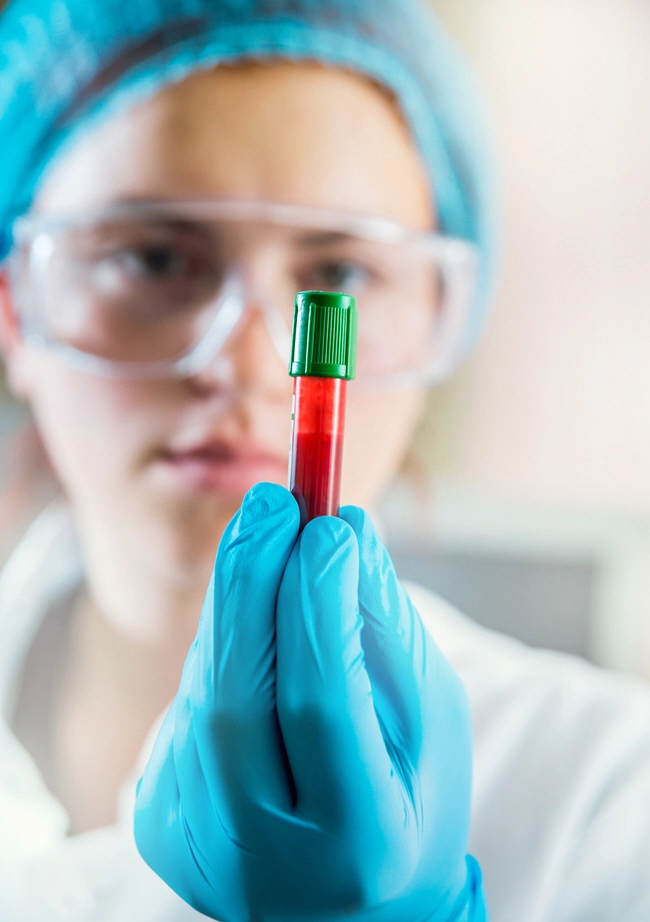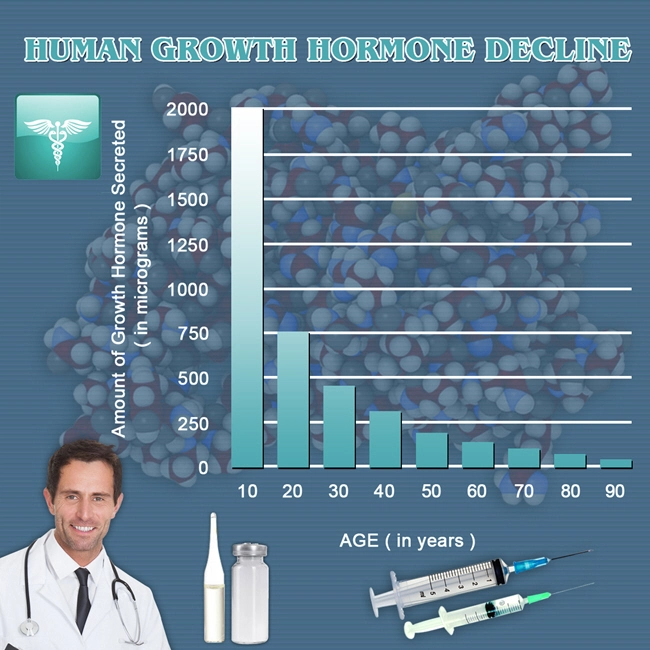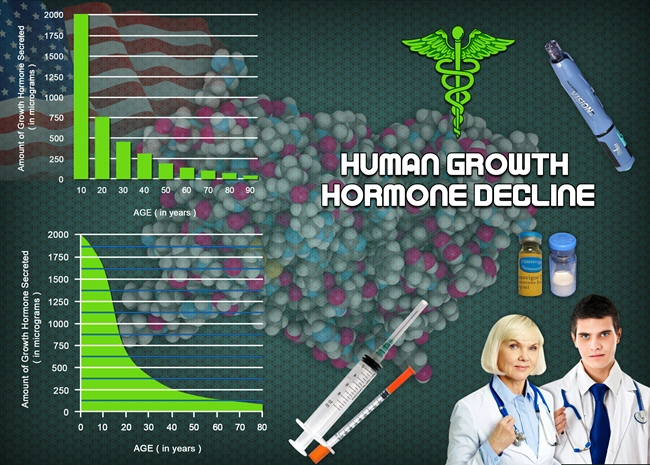
Video Link: https://vimeo.com/286234263
Video Download: Click Here To Download Video
Video Stream: Click Here To Stream Video
The Facts About Cholesterol...the Truth May Surprise You!
Our clinic specializes in Human Growth Hormone (HGH) replacement therapy. We pride ourselves on offering the most cutting-edge, efficient, and safe regimens to restore your growth hormone to more youthful levels so that you can being living life fully once again!
However, growth hormone replacement, as potent as it is, will not be sufficient on its own to maximize your treatments. We practice a holistic approach to health, and that includes nutrition, fitness, stress reduction, and the most proven ways to avoid the health destroyers that strike down so many people.
And that includes the facts that you need to know about cholesterol.
Chol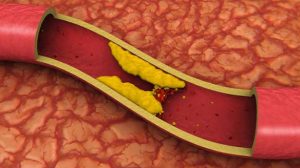 esterol. The word itself conjures up all sorts of scary images: so-called “bad” cholesterol causes heart attacks...plaque buildup...strokes...and peripheral artery disease.
esterol. The word itself conjures up all sorts of scary images: so-called “bad” cholesterol causes heart attacks...plaque buildup...strokes...and peripheral artery disease.
It’s common knowledge that doctors and scientists are convinced that high levels of cholesterol are a grave and immediate threat to your continued good health.
As a result of this belief, prescription pads for statin cholesterol-lowering drugs are issued in an almost assembly-line manner.
But is this Approach Always the Right Way to Go?
Is it true that cho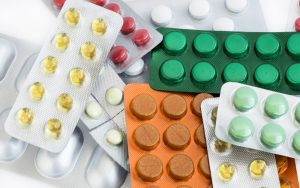 lesterol really is the scoundrel that it is made out to be? Are we too obsessed with numbers? If so, is this obsession causing us to attack both good and bad cholesterol by over-prescribing cholesterol-lowering drugs?
lesterol really is the scoundrel that it is made out to be? Are we too obsessed with numbers? If so, is this obsession causing us to attack both good and bad cholesterol by over-prescribing cholesterol-lowering drugs?
Perhaps.
To answer these questions, let’s take a detailed look at cholesterol: what it is, what functions it performs, and its effects, both good and bad.
What Precisely is Cholesterol?
Cholesterol is a fatty, waxy substance that lives in every one of the cells in your body.
Cholesterol is a sterol (also known as steroid alcohols, sterols are a subgroup of the steroids and an important class of organic molecules) that travels through your blood by way of lipoproteins (any of a group of soluble proteins that combine with and transport fat or other lipids in the blood plasma).
Lipoproteins consist of lipids (fats) internally and protein externally.
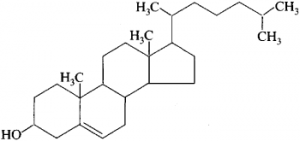
The level of cholesterol in the body is measured in the blood by two different types of lipoproteins:
- High-density lipoproteins (HDL), the so-called “good cholesterol.”
- Low-density lipoproteins (LDL), the so-called “bad cholesterol.”
Cholesterol is found mainly in the brain, spinal cord, and adipose (fat) tissue, primarily functioning as a protective agent in the skin and myelin sheaths of nerve cells. Also, cholesterol acts as a detoxifier in the blood stream, and as a forerunner of many beneficial steroids.
Here’s where things get interesting. Cholesterol is responsible for many crucial functions that are important in maintaining your good health.
If your cholesterol levels balance at their optimal numbers, you will be protected from several types of cerebrovascular diseases (a group of conditions that affect the supply of blood to the brain, causing limited or no blood flow to the affected areas).
Conversely, unbalanced cholesterol levels can increase the risk of cerebrovascular diseases.
What About the So-Called “Miracle Drug” Statins
First developed in the 1970s, statin drugs are sold under various names:
- atorvastatin (Lipitor)
- pitavastatin (Livalo)
- pravastatin (Pravachol)
- fluvastatin (Lescol, Lescol XL)
- lovastatin (Mevacor, Altoprev)
- simvastatin (Zocor)
- rosuvastatin (Crestor)
Throughout the decades that statins have been prescribed, they have been praised for not just lowering bad cholesterol, but reducing the risk of strokes and diabetes, as well as protecting from Alzheimer's Disease and osteoporosis.
Also, study after study has concluded that statins are remarkably safe. The only exceptions are people who have liver disease, are pregnant, or suffer from an allergy to statins. In short, statins have been touted as a “wonder drug.”
But is This True? Are Statins Really Safe?
As with all medical treatments, there are two sides to the story. There is no question that statins have delivered everything promised for some people.
But for others, it has not been smooth sailing. There are several hundred studies that have linked statins to several adverse medical conditions: elevated liver enzymes, anemia, thyroid problems, acidosis, chronic fatigue, Parkinson’s Disease, Alzheimer's Disease, and cancer.
Indeed, an impressive list. Yet the continued use of these drugs indicates that these dangers are often ignored or downplayed as exceedingly rare.
The result is that many patients may lower their cholesterol levels at the cost of developing the conditions listed above.
More Problems with Statins
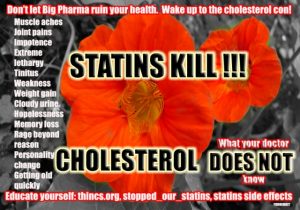
In a 1993 study conducted by a team of researchers from the University of California San Francisco (UCSF), statins were directly linked to an increased risk of non-cardiovascular health problems.
The researchers concluded that patients who lowered their cholesterol levels with statins increased their risk of developing other chronic and severe health issues.
This emphasizes the point that statins are not always the “safe, wonder-drug” that they are promised.
“Meta-analyses of primary prevention trials in middle-aged men reveal an increase in non-CHD (coronary heart disease) deaths among those randomized to cholesterol interventions, an unexpected finding that is more substantial than the decrease in CHD deaths,” the authors reported.
“This raises the possibility that one or more of the cholesterol interventions could have severe adverse effects among young adults, whose risk of non-CHD death is usually 100 times their risk of CHD death.”
A similar study conducted nearly a decade later confirmed those findings: the danger of statin drugs often exceeded the risks of high cholesterol.
In a more recent study published in the March 2015 edition of the journal Expert Review of Clinical Pharmacology, researchers concluded that statins interfered with biosynthesis (the process in the body that converts simple structures into more complex structures) of selenium-containing proteins.
This is important since one of those proteins is glutathione peroxidase, which lowers peroxidative stress. This often results in heart failure and atherosclerosis.
Still another study published in the 2002 edition of The Lancet, a United Kingdom medical journal, links the use of a popular cholesterol-lowering drug Pravastatin to increased cancer risk.
The good news? Pravastatin worked. LDL cholesterol levels were lowered in patients by an average of 34%. The bad news? New cancer diagnoses “were more frequent on pravastatin than on placebo.” A trade-off that might not work for the benefit of the patient.
Worse, cholesterol may not be the serious problem that it is commonly thought to be.
Why You Need Cholesterol
Cholesterol is a crucial component of many cell functions that make cell membranes that maintain cell fluidity. This allows the cholesterol lipids to transport cholesterol via our blood stream to wherever in the body it is needed. Also, cholesterol has several other vital roles to play such as:
- Excess LDL cholesterol can accumulate and stick to the walls of your arteries. Over time, excess cholesterol can clog your arteries, resulting in diminished blood flow and possibly leading to a stroke or heart attack.
- HDL cholesterol acts like a mop by absorbing the surplus cholesterol from your tissues and arteries and carrying it back to the liver, thus preventing cholesterol build-up.
- Cholesterol is a significant element of myelin, a soft, fatty material that consists mainly of lipids and lipoproteins. Myelin envelops certain axons and nerve fibers and plays a vital role in the smooth functioning of the nervous system. If your cholesterol levels are too low, your nervous system components will have a hard time communicating with each other.
- Adequate levels of cholesterol deliver protection to your immune system. This gives you protection from all types of disease, including cancer.
- Cholesterol provides fuel to your brain, thus enabling the brain to function optimally.
- Cholesterol is also an antioxidant that delivers protection from inflammation.
- Finally, cholesterol is a precursor to the manufacture of your essential stress-busting hormones, sex hormones, and the hormone vitamin D.
The Dangers of Low Cholesterol
Consider this: cholesterol is produced in your body naturally, and has a beneficial role to play in maintaining your continued good health. In fact, think of cholesterol as a nutrient rather than a dangerous, toxic substance that must be minimized at all costs.
In addition to playing a protective role in cancer prevention, the reverse is also true: not having sufficient levels of cholesterol can increase cancer risk, as noted in the previously-quoted studies.
Also, lower levels of essential hormones and vitamin D can be a symptom of low cholesterol, and depression and brain fog can also result. This is due to cholesterol’s protection of brain cells.
The Real Hidden Health Problem: Excess Sugar
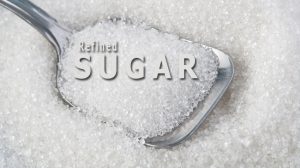
Most researchers and medical professionals agree that most of our usual health afflictions are a direct result of the wrong, unhealthy nutritional choices and a sedentary lifestyle, not high levels of cholesterol.
When it comes to poor eating habits, one startling fact stands out: according to a University of North Carolina study, there has been a skyrocketing 30% increase in the consumption of added sugars consumed by Americans in the past three decades!
"Added sugars increase excess energy and reduce the nutrient density in our diets, often contributing to weight gain and obesity,” said study author Elyse Powell.
Added sugars have insidiously crept into all types of processed foods: the usual suspects such as candy, soft drinks, sports drinks, and other sweets and places where you wouldn’t make the connection: pasta sauces, ketchup, and salad dressings.
Many healthy foods contain sugar naturally, and that’s not necessarily a bad thing unless you are in the diabetic “red zone.”
But when you see the word "added" on the label of processed food, then sugar becomes problematic, since you are getting a double dose of sweeteners that is unnatural.
So, here’s what to remember about healthy eating and cholesterol: avoid or minimize your sugar intake by avoiding simple carbs as much as possible. Then cholesterol will hopefully not be an issue that threatens your health.
To sum things up, there are indeed times that statin drugs can be beneficial, if not life-saving.
But never forget that the cholesterol story has two sides, good and bad. If your LDL cholesterol levels are rising, here are a few steps to consider as ways to slash your LDL levels naturally:
- Make nutritional changes by dramatically lowering your consumption of processed foods loaded with added sugars and increasing your consumption of fresh low-glycemic vegetables and fruits. Nuts like almonds and walnuts, garlic, and soluble fiber from beans, legumes, and oats should not be overlooked. Also, add green tea to your daily beverage consumption.
- Get active. A combination of strength, cardiovascular, flexibility, and balance work will combine to get your body functioning smoothly and blast the excess cholesterol out of your system once and for all.
- Consider adding nutritional supplements to the mix. Niacin, Red Yeast Rice Extract, CoQ10, fish oil, and Artichoke extract have helped the battle against high LDL cholesterol with some people. But for many, the evidence is inconclusive. If you decide to try any of these supplements, you must check with your physician, as there can be side effects depending on your condition.
- Finally, consider Growth Hormone replacement therapy. Increasing your Growth Hormone levels decreases LDL cholesterol levels. This is as a result of increased liver LDL receptor activity.
So now you have the story and the facts of cholesterol. At our clinic, we include cholesterol monitoring as a part of your Growth Hormone replacement therapy.
We will ensure that your cholesterol levels remain in balance: the "golden mean” of not too high and not too low.
References
Cholesterol Myths that May Surprise You
Cholesterol, the mind, and the brain
Contact Us Today For A Free Consultation
Dear Patient,
Once you have completing the above contact form, for security purposes and confirmation, please confirm your information by calling us.
Please call now: 1-800-380-5339.
Welcoming You To Our Clinic, Professor Tom Henderson.

- 0001) A Major Breakthrough in Anti-Aging Science is now Reality! [Last Updated On: November 12th, 2025] [Originally Added On: September 19th, 2020]
- 0002) All the Different Brands of Human Growth Hormone -- Guide [Last Updated On: February 10th, 2025] [Originally Added On: September 21st, 2020]
- 0003) Weight Loss Through HGH [Last Updated On: February 10th, 2025] [Originally Added On: September 24th, 2020]
- 0004) Did You Know: Sarcopenia is Increasing Among Senior Citizens at a Blistering Pace? [Last Updated On: February 8th, 2025] [Originally Added On: October 5th, 2020]
- 0005) Growth Hormone and Sleep [Last Updated On: February 9th, 2025] [Originally Added On: October 8th, 2020]
- 0006) Hormone Replacement Therapy Program Protocol Diary [Last Updated On: November 11th, 2025] [Originally Added On: October 9th, 2020]
- 0007) The Curse of Non-Alcoholic Fatty Liver Disease [Last Updated On: February 6th, 2025] [Originally Added On: October 11th, 2020]
- 0008) How Can I Get More HGH (Human Growth Hormone) Naturally? [Last Updated On: August 28th, 2025] [Originally Added On: August 16th, 2021]
- 0009) Growth Hormone FAQ's [Last Updated On: February 4th, 2025] [Originally Added On: October 8th, 2021]
- 0010) Growth Hormone: A powerful tool to battle Erectile Dysfunction [Last Updated On: February 6th, 2025] [Originally Added On: October 8th, 2021]
- 0011) How to buy Growth Hormone [Last Updated On: February 7th, 2025] [Originally Added On: October 8th, 2021]
- 0012) Testosterone Battles Diabetes [Last Updated On: February 3rd, 2025] [Originally Added On: October 8th, 2021]
- 0013) Growth Hormone protects your Adrenal Glands [Last Updated On: February 4th, 2025] [Originally Added On: October 8th, 2021]
- 0014) Buy Growth Hormone! [Last Updated On: February 9th, 2025] [Originally Added On: October 8th, 2021]
- 0015) Growth Hormone reduces Heartburn [Last Updated On: February 5th, 2025] [Originally Added On: October 8th, 2021]
- 0016) The Link Between Diabetes and Growth Hormone [Last Updated On: February 7th, 2025] [Originally Added On: October 8th, 2021]
- 0017) Growth Hormone and Nutraceuticals [Last Updated On: February 8th, 2025] [Originally Added On: October 8th, 2021]
- 0018) Growth Hormone and Depression [Last Updated On: February 3rd, 2025] [Originally Added On: October 11th, 2021]
- 0019) Growth Hormone and the Pituitary Gland [Last Updated On: February 1st, 2025] [Originally Added On: October 11th, 2021]
- 0020) Growth Hormone and Calorie Restriction. [Last Updated On: February 2nd, 2025] [Originally Added On: October 11th, 2021]
- 0021) Growth Hormone and Healthy Living Can Add Years to Your Life! [Last Updated On: February 2nd, 2025] [Originally Added On: October 11th, 2021]
- 0022) Welcome to Growth Hormone and Testosterone Therapy [Last Updated On: January 17th, 2026] [Originally Added On: October 11th, 2021]
- 0023) Human Growth Hormone Medical Guide [Last Updated On: May 18th, 2025] [Originally Added On: October 25th, 2021]
- 0024) HGH Female Blood Panel [Last Updated On: July 9th, 2022] [Originally Added On: October 28th, 2021]
